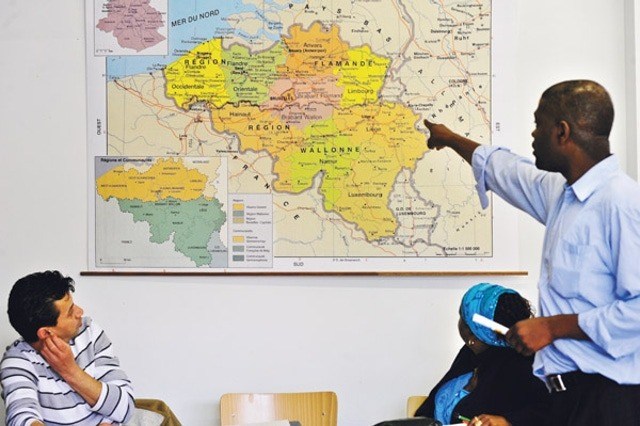Over 1,200 breaches were recorded for people who did not comply with the obligations of their integration programme in Flanders last year, leading to 401 people getting fined, show figures requested by the Flemish rightwing N-VA party.
Newcomers to Belgium have to follow an obligatory (non-EU nationals) or voluntary (EU nationals) integration programme depending on their status. If they fail to comply with a compulsory programme, an infringement file is drawn up and they can be fined.
Last year, 10% fewer integration contracts (20,753) were opened than the year before, and the number of infringement cases also fell by a quarter, to 1,223. The drop is partly due to the fact that the civic integration policy has changed since March 2022 and now requires people who follow the civic integration programme of their own free will to pay for the civic integration programme.
The combination of the voluntary nature and making the civic integration programme payable from September 2023 no longer necessitates sanctioning.
401 fines
These civic integration courses – which are supposed to provide a cultural and linguistic background to people arriving on Belgian territory – are enforced as a tool to ensure people coming from outside of Europe can “take an active part in society,” with the presumption being that they diverge too much from European values and societies.
Many criticisms have been levelled at these programmes as they force an image of “other” onto non-Europeans, with critics saying integration is a process that works both ways, and can also be achieved through means such as access to decent jobs and schools for young people.
The most common reasons for an infringement report are not regularly attending courses, not registering for the civic integration programme on time or terminating the programme unlawfully early. For the 884 infringement files already processed, 401 fines were issued. The bulk of the fines (84%) concerned amounts below €500. Three people, however, were fined €5,000.
Related News
- EU work and residence permits for non-nationals to be issued more quickly
- Number of 'new' Belgians at highest level in over 20 years
N-VA also calls again for better information exchange between the Flemish and federal levels, more specifically between the Flemish Integration and Integration Agency and the Federal Immigration Department (DVZ).
This information exchange is also provided for in the new integration decree, which has been operational for more than a year now. Still, the effective exchange needs to be worked out as the party finds it "incomprehensible" that this flow of information is lacking.

